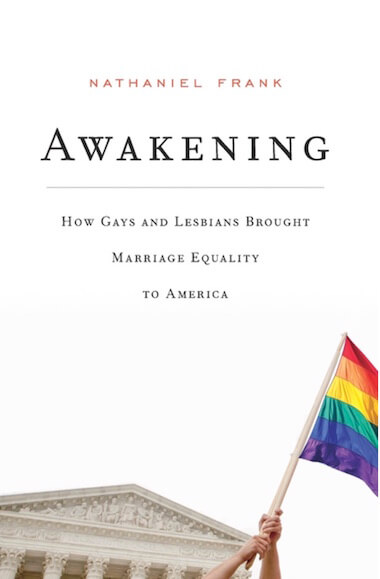Chief US District Judge for Idaho David C. Nye issued an injunction on August 17 to block enforcement of Idaho’s Fairness in Women’s Sports Act, which Governor Brad Little had signed into law on March 30.
Enactment of the law made Idaho the first state with a statutory ban on transgender women and girls competing in women’s interscholastic sports.
The law did not come in response to any particular controversy involving trans women in Idaho seeking to compete in women’s sports. Rather, it appears to have been inspired by news reports about incidents in other states, and in particular a lawsuit filed by some cisgender girls in Connecticut upset that the interscholastic sports association there adopted a policy of allowing trans women to compete as women.
With preliminary injunction, judge concludes state unlikely to present justification for a categorical ban
Judge Nye pointed out that various professional associations governing women’s interscholastic sports have adopted rules that trans women would be eligible to compete in women’s sports after having undergone at least one year of hormone therapy to suppress their testosterone levels. That standard is based on evidence showing that this would not pose unfair competition for cisgender women.
Despite the lack of any sort of specific incident, the Idaho Legislature actually delayed for a few days in joining the nationwide shift of legislative activity online in the face of the coronavirus pandemic in order to enact two anti-transgender bills.
Republican State Attorney General Lawrence Wasden warned legislators that the sports competition measure would present legal issues under the US Constitution and Title IX of the federal Education Amendments of 1972.
The other bill, reviving a ban on issuing new birth certificates for transgender individuals, was passed in defiance of a federal injunction against a similar statute. The federal judge who issued the original injunction in 2018, Candy Dale, ruled August 7 that the regulations announced for the new birth certificate law violated her two-year-old injunction.
March was clearly anti-trans month in the Idaho Legislature.
In addition to excluding transgender women from competing in any organized or team sports activity designated for women only, the sports law empowered anybody to challenge the female sex of a participant, placing the burden on the challenged individual to provide evidence of their female sex according to a definition that essentially deems trans women to be men. The law also authorized anybody who claimed to have been harmed by a violation of the statute to sue for damages.
The American Civil Liberties Union filed suit on behalf of Lindsay Hecox, a transgender woman interested in competing in women’s sports at Boise State University, and a cisgender girl allowed to proceed anonymously as Jane Doe, both challenging the law on constitutional and statutory grounds. They also sought a preliminary injunction to prevent the law from going into effect while the lawsuit plays out. Jane Doe argued that the law subjected her to the possibility of being challenged about her gender and subjected to invasive procedures.
The state responded with a motion to dismiss the case, and two cisgender women filed a motion to intervene as co-defendants, claiming they would be harmed by facing unfair competition from trans women if the law were blocked.
Of course, the Trump administration, which is not a party to litigation involving a state law, filed a statement of interest, supporting Idaho’s right to exclude trans women from competition.
Nye refused to dismiss the case, finding that the law is a clear case of discrimination due to transgender status and that the Supreme Court’s June 15 decision in Bostock v. Clayton County regarding Title VII employment nondiscrimination protections demonstrates that anti-transgender discrimination is discrimination “because of sex.” For that reason, the law is subject to the court’s “heightened scrutiny” in an equal protection challenge.
Laws subject to heightened scrutiny do not enjoy the normal presumption that they are constitutional. Instead, the state has the burden of justifying such a law by showing that it substantially advances an important state interest. In an opinion by Justice Ruth Bader Ginsburg years ago finding the Virginia Military Institute’s men-only admissions policy to be unconstitutional, the court held that a law or policy discriminating because of sex can only survive judicial review if the state has an “exceedingly persuasive” justification for it.
Nye concluded that such a justification was lacking, and granted the plaintiffs’ preliminary injunction. Since Idaho never previously restricted transgender women from competing as women, the injunction merely maintains the status quo as the lawsuit proceeds.
The state’s purported justification for the law was to “ensure equality and opportunities” for female athletes, but Nye was not persuaded the law would substantially advance that goal.
“Ultimately,” he wrote, “the Court must hear testimony from the experts at trial and weigh both their credibility and the extent of the scientific evidence. However, the incredibly small percentage of transgender women athletes in general, coupled with the significant dispute regarding whether such athletes actually have physiological advantages over cisgender women when they have undergone hormone suppression in particular, suggest the Act’s categorical exclusion of transgender women athletes has no relationship to ensuring equality and opportunities for female athletes in Idaho.”
A categorical ban on trans women competing in interscholastic sports, then, was unlikely to survive a trial on the merits, Nye concluded, emphasizing however, “Again, at this stage, the Court only discusses the ‘likelihood’ of success based on the information currently in the record. Actual success — or failure — on the merits will be determined at a later stage.”
Still, he noted, in explaining his injunction, “Instead of ensuring ‘long-term benefits that flow from success in athletic endeavors for women and girls,’ it appears that the Act hinders those benefits by subjecting women and girls to unequal treatment, excluding some from participating in sports at all, incentivizing harassment and exclusionary behavior, and authorizing invasive bodily examinations. In the absence of any evidence that transgender women threatened equality in sports, girls’ athletic opportunities, or girls’ access to scholarships in Idaho… neither Defendants nor the Intervenors would be harmed by returning to this status quo.”
Nye, formerly a state court judge, was originally nominated to the federal bench by President Barack Obama in 2016, when Republican Senate Majority Leader Mitch McConnell was refusing to consider any nominations. In 2017, Idaho’s two Republican senators asked President Donald Trump to re-nominate him. So the irony: Trump’s first Supreme Court appointment, Neil Gorsuch, wrote the opinion protecting trans people under Title VII, and one of his first district court appointments has rejected the Trump administration’s position on this case as spelled out in the statement of interest it filed.



































